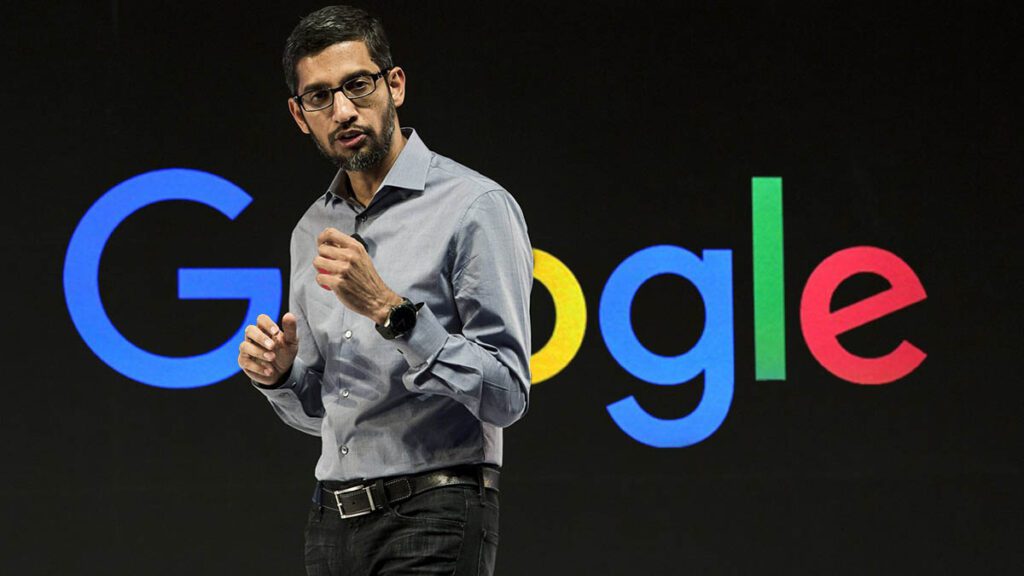
France’s Competition Authority slapped on Tuesday one of the biggest fines in the tech world against Google. The Authority found that the search engine failed to negotiate with other media organizations regarding the utilization of their content under EU copyright reforms.
As a result, the internet giant is facing a 500-million-euro ($593 million) fine. The Competition Authority also stated on their website that they requested Google to provide media publishers with “an offer of remuneration for the current use of their copyrighted content.”
If Google fails to do so, the multinational technology company risks paying additional charges which will cost 900,000 euros (one million dollars) per day.
France is one of the few countries that actively implement EU copyright rules, which allows media publishers the right to request remuneration when their content is presented on online media platforms, including Google.
With that in mind, Google CEO Sundar Pichai warned the world on Monday that several countries are cutting the flow of information short, resulting in an attack on internet freedom.
The 49-year-old Indian American chief exec sat down with BBC journalist Amol Rajan at the Google headquarters in Silicon Valley, California to discuss a plethora of topics regarding threats to the free internet, taxes, privacy breaches, and how artificial intelligence (AI) will revolutionize the world as we know it.
The man in charge of overseeing Google and its wide array of products and services told the BBC that the model is being taken for granted by countries who are restricting access of information.
According to Rajan, the Google head did not specifically name China as one of the countries restricting the flow of information. However, Pichai did go on to state that none of Google’s major products and services are available in the world’s most densely populated country.
Pichai, born in Tamil Nadu which lies in the extreme south of India, was raised in Chennai, Tamil Nadu’s largest city and capital. During the interview, Pichai took the time to praise his home country India, which he says is rooted in him, and is a big part of his large success.
“I’m an American citizen but India is deeply within me. So, it’s a big part of who I am,” Pichai said in reference to his upbringing.
When it comes to the future of AI, Pichai believes that it might possibly take over the world. The man behind one of the most revolutionary tech industries argued that artificial intelligence is even more profound than fire and electricity.
“I view it [artificial intelligence] as the most profound technology that humanity will ever develop and work on. You know, if you think about fire or electricity or the internet, it’s like that. But I think even more profound,” Pichai said.
While addressing the issue of Google’s taxation, Pichai said that “we are one of the world’s largest taxpayers, if you look at on an average over the last decade, we have paid over 20 per cent in taxes.”
Pichai’s statements come days after Google received a lawsuit filed by 36 states as well as the District of Columbia. The lawsuit claims that the tech giant is abusing its market power and forcing aggressive terms on other software developers.
Led by Utah, North Carolina, New York and Tennessee, the most recent lawsuit filed against Google comes as the fourth in line since October. Software developers have long argued that Google forces them to pay for their own software and apps. The complaint states that Google charges a 30 percent commission on top of multiple transactions, which forces the developers to charge higher prices for their services.
“We do pay the majority of our share of taxes in the U.S., where we originate and where our products are developed. I think there are good conversations, and we support the global OECD conversations figuring out what is the right way to allocate taxes,” the Google boss added, insinuating that this issue is outside the hands of Google.
Additionally, when it comes to privacy breaches, Pichai noted that his work helped him develop personal tech habits such as the “two-factor authentication” for his passwords to make sure that his privacy is ensured.
Pichai, who’s described as exceptionally kind, thoughtful, and a caring leader also encouraged all internet users to take the same privacy measures.